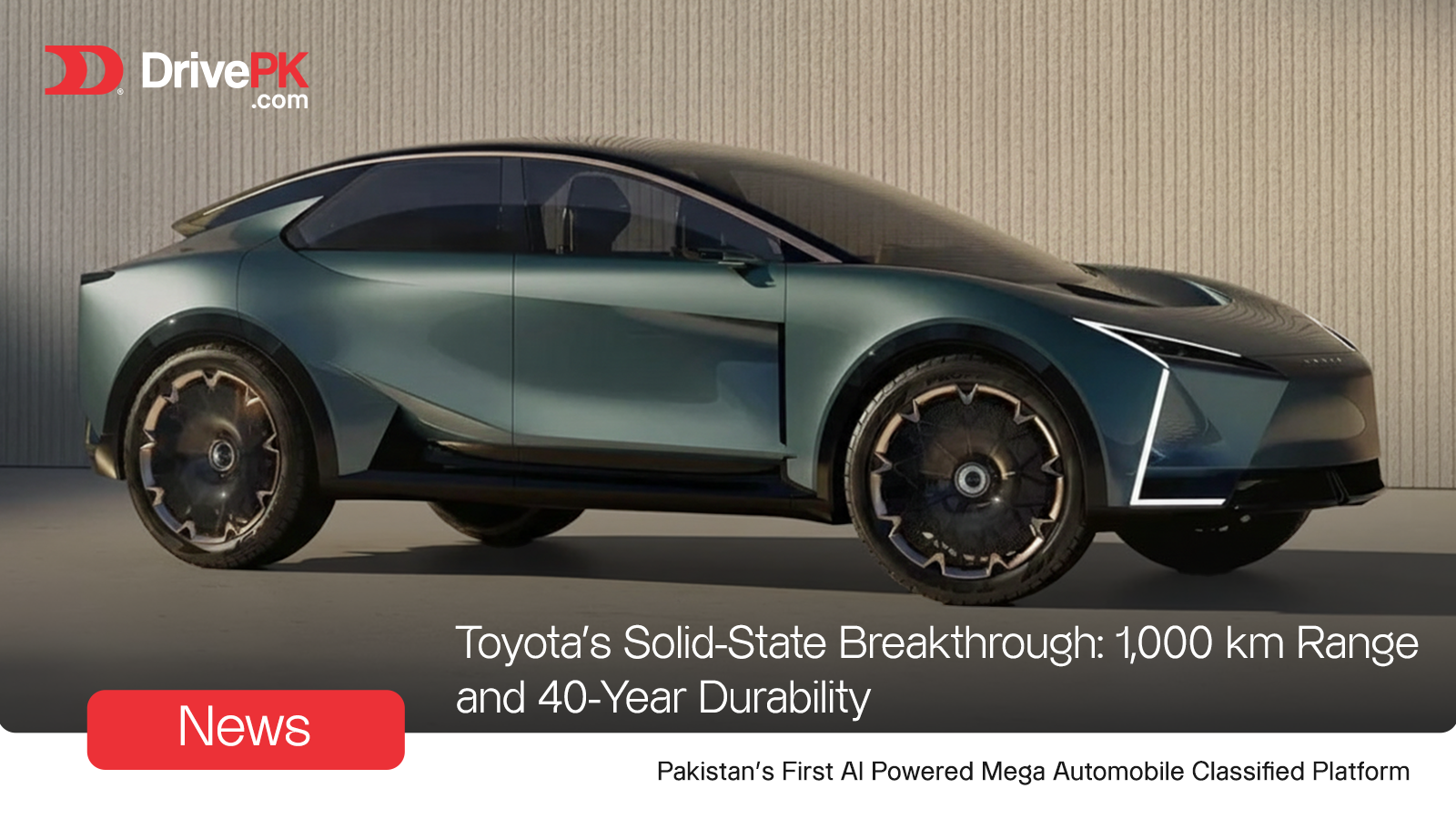Toyota’s Solid-State Batteries: What You Need to Know Before 2027
Toyota is set to change the EV game with solid-state batteries launching in 2027–2028. Promising 1,000 km range, 10-minute charging, and an incredible 40-year life, these next-gen batteries will first power Lexus and Toyota models. Built for performance, safety, and longevity, the future of electric mobility starts here.

Table of Contents
- Inside the Battery
- Charging Speed
- First Models on the Road
- Material Supply Chain
- Real-World Range Tests
- Battery Life in Years
- Cost Over Time
- Driver Experience
- Reuse and Recycling
- Challenges Still Ahead
- Japan’s Bigger Plan
Toyota will launch solid-state batteries in 2027 or 2028. One charge delivers over 1,000 km. The battery lasts up to 40 years. That’s four times longer than current lithium-ion packs in most EVs.
Inside the Battery
No liquid electrolyte. A solid ceramic layer moves ions. This cuts weight by 30 percent and size by half. No flammable fluids means almost zero fire risk. Toyota tested extreme heat, cold, and crash impacts. Results passed every safety check.
Charging Speed
Ten minutes at a fast station hits 80 percent. A 30-minute lunch break fills the rest. Home chargers need 350 kW output—newer models already support it. Public networks in Japan plan upgrades by 2026.
First Models on the Road
Lexus LF-Z concept previews the tech. The production Lexus sedan arrives first in 2027. The Toyota Century limousine follows in 2028. Corolla and Prius versions enter showrooms by 2030. Early buyers pay premium prices, expect $15,000 extra per car.
Material Supply Chain
Sumitomo Metal Mining locks in lithium, nickel, and cobalt. New refineries will open in Kyushu by 2028. Toyota owns 20 percent of the output. This secures supply while prices rise globally.
Real-World Range Tests
Toyota ran prototypes 1,200 km on a single charge in mixed city and highway driving. Cold weather at -10°C still gave 950 km. The summer heat at 40°C dropped it to 1,050 km. Numbers beat today’s best EVs by 50 percent.
Battery Life in Years
Lab cycles show 5,000 full charges with 90 percent capacity left. That equals 40 years of average use. A family could pass the battery to a second car, then a third, then a home storage unit. Recycling plants will strip rare metals for new cells.
Cost Over Time
First-year price sits near $300 per kWh. By 2032, Toyota targets $100 per kWh. Long life means the owner spends $2,000 per decade instead of $10,000 to replace a pack.
Driver Experience
Instant torque. No range drop in winter. Silent cabin. Over-the-air updates tweak charging curves. Dashboard shows the exact minutes to full.
Reuse and Recycling
Old packs power warehouses or solar farms. Toyota builds swap stations. Pull out, slide in a fresh unit, drive off in two minutes. Used solids retain 70 percent value after 20 years.
Challenges Still Ahead
Mining capacity must triple. New factories need skilled workers. Charging grids in rural areas lag. Toyota funds training schools and grid upgrades now.
Japan’s Bigger Plan
Cut oil imports by 20 percent by 2040. Create 50,000 battery jobs. Lead global standards for solid-state safety. Rivals in China and the U.S. race to catch up.
These batteries solve three pain points: range anxiety, slow charging, and short pack life. They cost more at first. But they pay back over decades. And they keep cars on the road longer with less waste. For more updates, visit DrivePK.com
Tags
Share this article
About the Author
Najeeb Khan
Automotive enthusiast and writer
Comments (0)
Login Required
You need to be logged in to comment on this article.
No comments yet. Be the first to share your thoughts!
Related Articles

Karachi Red Line BRT Project Update 2026: Sharjeel Inam Memon Shares Timeline and Challenges
Sharjeel Inam Memon updated on the Red Line BRT in Karachi. The project could need another 18 months to complete after facing big challenges. Side roads will be ready before Eid. Key work on University Road finishes soon. Efforts continue to clear bus import hurdles

Islamabad Electric Tram Service 2026: CDA Starts Feasibility Study for New Routes
Capital Development Authority has begun work on an electric tram service in Islamabad. The move follows direct orders from the federal interior minister. The feasibility study must finish in three months. Routes planned from Islamabad Airport and Rawat to Lake View Park. The system will be fully cashless.

Thalian Interchange Work Starts Next Week on Rawalpindi Ring Road, Cost Now Rs 47 Billion
Work on the Rs 5 billion Thalian Interchange of the Rawalpindi Ring Road starts next week. The divisional administration will acquire 358 extra kanals near the motorway, raising the total project cost to Rs 47 billion. More than 85% of the road is already finished. Bookings for toll and e-tags are expected to follow the Lahore model at Rs 80 per vehicle.